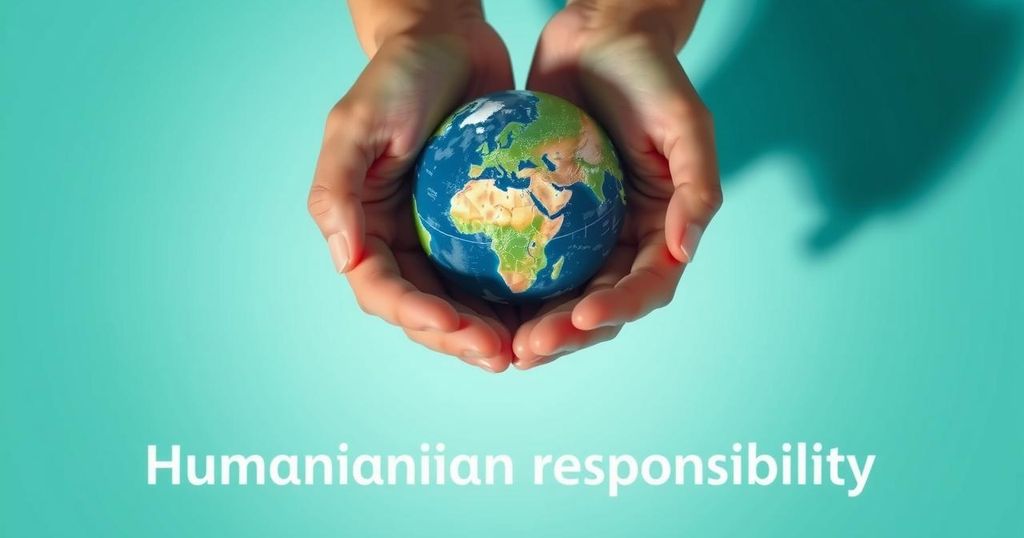Trump Pressures Jordan and Egypt to Accept Palestinian Refugees or Risk Aid Cuts

President Trump has demanded Jordan and Egypt accept Palestinian refugees from Gaza or face cuts to U.S. aid. Both nations have historically rejected such proposals, fearing it could lead to permanent displacement of Palestinians. Despite these concerns, Trump remains optimistic about facilitating housing for relocated Gazans and has framed the initiative as part of a broader redevelopment plan for Gaza. Tensions grow as Hamas suspends hostage releases, further complicating negotiations.
In a recent statement, President Donald Trump has compelled Jordan and Egypt to accept Palestinian refugees from Gaza, threatening to withdraw U.S. aid if they do not comply. This demand is part of a broader scheme aimed at redeveloping the war-torn region into what Trump envisions as the “Riviera of the Middle East.” Both nations, however, have historically resisted accepting displaced Palestinians, perceiving it as a tactic for Israel to permanently remove them from their homeland.
During an anticipated meeting with Jordan’s King Abdullah, who has expressed strong opposition to the relocation of Palestinians, Trump reiterated his stance. King Abdullah is expected to convey that such a proposal would incite radicalism, destabilize the region, and challenge the fragile peace agreements with Israel. Notably, nearly half of Jordan’s population is of Palestinian descent, which complicates the national identity and civic demographics.
Rejection of the refugee resettlement is a long-standing policy for both Jordan and Egypt, rooted in the 1994 Israel-Jordan peace treaty that protects against involuntary mass population transfers. This stance was reiterated by key leaders, including King Abdullah, who stated, “No refugees in Jordan, no refugees in Egypt,” and Egyptian President Abdel Fattah el-Sisi, emphasizing the need to avert the displacement of civilians to their countries.
The Geneva Conventions explicitly prohibit forced displacement, which further complicates this issue. Trump remains optimistic about a compromise, asserting, “I do think he’ll [King Abdullah] take” refugees, suggesting that both nations have benevolent intentions despite their current denials.
Jordan relies heavily on U.S. assistance, receiving over $1.6 billion annually, while Egypt receives about $1.5 billion. Recent comments from Jordan’s Foreign Minister Ayman Safadi assert the country’s steadfast opposition to Trump’s proposal. Furthermore, Trump has indicated that he does not believe displaced Gazans should have the right to return after redevelopment, proposing to negotiate housing arrangements with both nations.
Despite the ongoing conflict, there are reports of displaced Gazans returning to their homes in the northern regions following Israeli military activities. However, tensions are escalating, particularly as Hamas has halted hostage releases, blaming breaches on Israel. In response, Trump has set a deadline for the release of hostages, warning that inaction would lead to escalated conflict.
During his visit to Washington, King Abdullah is also scheduled to meet with various U.S. officials, including Secretary of State Marco Rubio and National Security Adviser Mike Waltz. This engagement marks Abdullah as the third foreign leader to consult with Trump since he took office, highlighting the significance of these discussions amidst the escalating Israeli-Palestinian conflict.
The ongoing dialogue between President Trump, Jordan, and Egypt underscores a critical juncture in U.S. foreign policy concerning Palestinian refugees. Trump’s push for resettlement aims to facilitate a redevelopment plan for Gaza, yet it faces staunch opposition from Jordan and Egypt, who rightly perceive it as a potential threat to regional stability and their national security. As tensions rise in the region, the outcome of these discussions will be pivotal in shaping future U.S. involvement and Middle Eastern geopolitics.
Original Source: www.telegraph.co.uk








